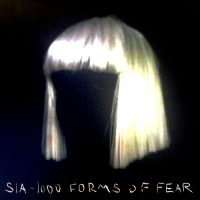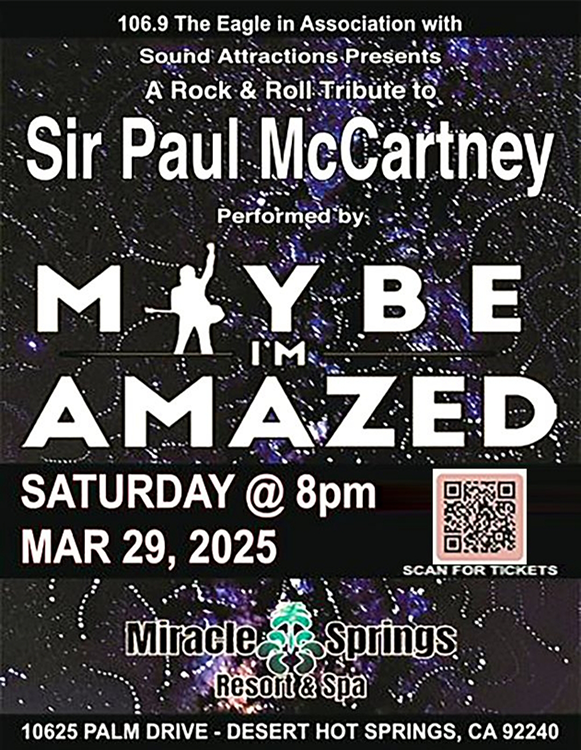
By Eleni P. Austin
Back in 2005 it seemed as though Sia burst on the scene with “Breathe Me.” The song was featured in the last minutes of the finale of the television series, “Six Feet Under.”
A haunting piano ballad, the lyrics limned the ache of loneliness and isolation, as the music accelerated toward a stunning crescendo. It perfectly complimented the most satisfying series finale ever. (Sorry, “Breaking Bad”).
In reality, Sia had been around for years. Born in 1975, in Adelaide, Australia, she grew up in a musical family. Both her parents cycled through a series of bands. Colin Hay, from Men At Work, was affectionately known as Uncle Colin because her dad had recorded and toured with the band in the late ‘80s.
By the early ‘90s, a teenage Sia was active in Adelaide’s vibrant Acid Jazz scene. She joined the band Crisp as lead vocalist. They recorded two albums in 1996 and 1997.
Sia tentatively began a solo career with her self-released Only See album. Just as the album was gaining momentum, tragedy struck when Sia’s boyfriend was killed in a traffic accident in London. Sia began self-medicating, (“we got shit-faced on drugs”). It was a bender that would last six years.
Sia continued to pursue a solo career, releasing her sophomore effort, Healing Is Difficult in 2001. But she really began to gain recognition as a featured vocalist for the airy Electronica duo, Zero 7. On their debut, Simple Things, Sia’s soulful, Jazz inflected vocals, (kind of a precursor to Amy Winehouse and Adele), anchored the duo’s spacious melodies. She emerged as the voice of Zero 7.
Her fourth album, Colour The Small One was released in 2004 and featured “Breathe Me.” When “Six Feet Under” supervisor Gary Calamar used the song to devastating effect in the series finale, the album began to gain traction. It was re-released through the Astralwerks label and shot up the charts.
Finally, Sia’s commercial fortunes had caught up with her prodigious talents. That streak continued with her 2008 effort, Some People Have Real Problems, a sharp blend of her quirky songs and her singular phrasing. Produced by Greg Kurstin (The Bird And The Bee, Lily Allen, Foster The People and The Shins), it debuted at #26 on the Billboard charts.
Kurstin was again behind the boards for her 2010 follow-up, We Are Born. A frothy onfection, propelled by dance beats, it was still shot through with Sia’s trademark melancholia.
Suddenly, she became a sought after collaborator: Writing or co-writing music for Christina Aguilara, Eminem, David Guetta, Flo-Rida, Jennifer Lopez, Shakira, Kesha, Rihanna, Beyonce and Maroon 5. Unfortunately, she also cancelled tour commitments having recently been diagnosed with Graves’ disease.
The pressures of fame, coupled with her diagnosis, plunged Sia back into addiction. Following a
suicide attempt, she entered rehab. Wary of the spotlight, she continued to work behind the scenes. Ironically, she had her biggest smash last year when Rihanna recorded her song, “Diamonds,” which peaked at #1 on the charts.
Reuniting with Greg Kurstin, she began work on her new album. She negotiated a unique deal with RCA, stipulating she wouldn’t have to do any press or tour to promote her album. She actually appeared on the Ellen DeGeneres show with her back to the audience.
Unfortunately, the resulting album, 1000 Forms Of Fear is abysmal. The opening track, “Chandelier,” is the first single. A ponderous party anthem that bears a fleeting resemblance to Nelly Furtado’s more assured “I’m Like A Bird.”
Both “Big Girls Cry” and “Eye Of The Needle” are facile attempts at introspection. The former offers up this earth-shattering nugget, “Big girls cry when their hearts are breaking.”
The latter is slow and lugubrious. A little bit of Sia’s idiosyncratic vocal style breaks through, but it’s not enough to save this vapid song. Ironically, both songs feel “montage” ready. As though they could score a pivotal scene in “Gossip Girl,” (is that still on TV?), or “Jane The Virgin.”
These songs all feel as though they were written for other people. The lyrics most tread the same tedious territory; basically, “I love you but you’re a dick.” The melody of “Fair Game” is slightly interesting. Powered by piano, mellotron and xylophone, but the vocals are too busy and the song is far too long, straining the listener’s good will.
“Elastic Man” is a synthesized pep talk that shares musical DNA with the “Pac Man” song. The worst song here has to be “Free The Animal.” Over a kinetic pulse, Sia offers up this mixed message of defiance. “Detonate me, shoot me like a cannonball, granulate me, kill me like an animal/Decapitate me, hit me like a baseball.” Worst of all, there’s an extended auto-tune segment.
A couple songs begin promisingly before they completely disappoint. “Burn The Pages” feels like a lost Flock Of Seagulls song, buoyed by click track percussion. But lyrics like “You’re twisted up like a slipknot, tied to a juice-head who just took his t-shot,” are too weirdly specific to resonate. Plus, Sia’s vocal gymnastics are irksome.
“Hostage” also mines an ‘80s groove. Slinky guitars compliment a kick drum beat. But the bouncy melody belies the lyrical themes of sado-masochism, bondage and (emotional) imprisonment.
“Straight For The Knife” isn’t horrible. A piano ballad anchored by a martial cadence, the melodramatic metaphors are a little over the top, but the song remains pleasant. “Cellophane” is tentative, but it offers some interesting aural textures.
The album closes with “Dressed In Black.” a somber discourse on the strains of emotional bondage. Still, the melody kicks in and it’s more of the same.
The problem here is that it feels as though Sia is still operating with a “songwriter for hire” mentality. These songs might be perfect for Rihanna or Ariana Grande, maybe Iggy Azalea.
Until Sia is ready to return to the naked emotions and melodic complexities of songs like “Breathe Me” maybe she should just consider writing for other people, and put her solo career on hold.













































